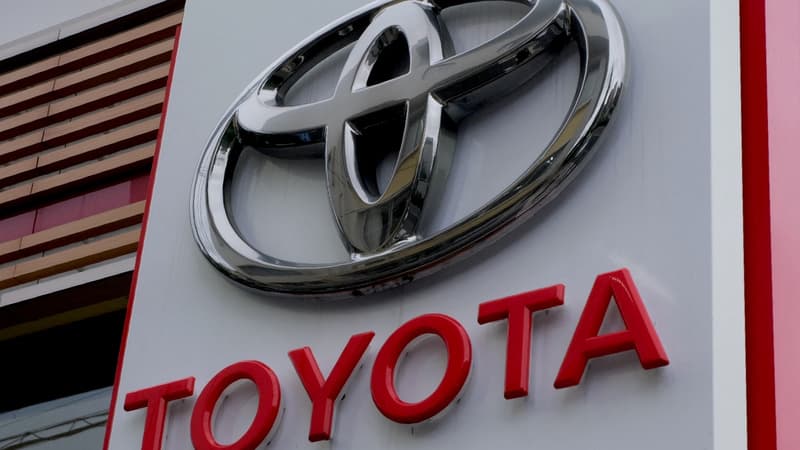Toyota awaits a dizzying fall. The Japanese car giant, the world number one, announced this Thursday, May 8, anticipates a 21% drop in their profits by 2025-2026, under pressure from US customs surcharges.
The car manufacturer provides an operational gain of 3,800 billion yen (23.35 billion euros) for the current financial year (April 2025 to April 2026), lower after 4,800 billion yen registered during its fiscal year 2024/25. The analysts expected better and took advantage of an operational gain of 4,7500 yen in 2024-25, according to LSE data.
“The estimated impact of American customs tasks implemented in April and May 2025 was temporarily taken into account,” said the Japanese group in a statement.
This impact is estimated at a cost of 180 billion yen (1,100 million euros), said the Japanese group in a press release.
The net profit falls by 35%
The company’s forecasts with respect to net profits provide an even heavier drop, with -34.9% during the same period, despite the fact that sales should continue to increase (+1%).
The fall in profits for next year is due to the negative impact of a stronger yen, as well as the increase in material prices and the impact of customs rates, the group said.
The administration of US President Donald Trump has imposed 25% surcharges since the beginning of April in imported cars to the United States, but also recently in imports of crucial parts such as engines and transmissions.
The Japanese cars giant, who, as competitors, suffers the lack of breath of car sales worldwide and regulatory surveys in Japan, is particularly vulnerable to this customs offensive launched by Washington.
Toyota, a manufacturer very sensitive to customs tasks
In 2024, Toyota had made a quarter of his world sales in the United States, where he sold 2.33 million vehicles, for 1.06 million had been imported from Japan and Mexico.
The issue is very sensitive in the archipelago: the car represents 28% of Japanese exports for the United States, and approximately one in eight jobs in the country is linked to the automotive industry.
“Motor manufacturers do what they can to try to relocate their production in the United States, even if there are no important disorders (immediately), because these production transfers have long been,” said Takaki Nakanishi to the AFP Nakanishi Research Institute.
Toyota has ten factories in the United States, but is also strongly established in Mexico, as part of the transfrontal production chains now severely disturbed, despite the recent softenings present by Donald Trump for spare parts.
Sales that are stagnant worldwide
The world sales of Toyota also stagnated last year, with a 0.3% decrease in 2024/25 to 10.27 million vehicles (including Lexus). This figure finds its roots in the diving of its sales in Japan until the past autumn, particularly due to the reminders of its Hybrid Prius model, followed by regulatory deliveries due to irregularities related to certification tests.
Toyota sales in China, a crucial market, fell approximately 6% in number of units in the year, in the face of the strong competition of Chinese manufacturers, including Byd, electric car champion, but also in the context of gloomy conditions in the country.
Source: BFM TV


